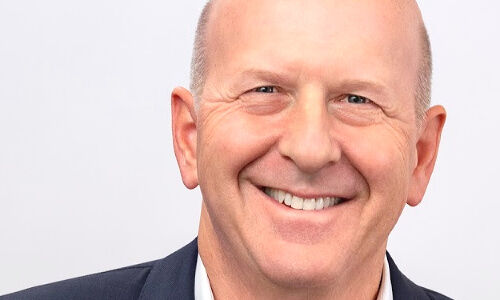The world’s largest trading house is quietly seeking to reinvent itself as a trusted wealth manager. finews.com on how Goldman Sachs may be the blueprint for the private banking industry.
With parts of securities trading under attack from technology, the U.S. investment bank is looking to lower its reliance on Wall Street’s boom-and-bust cycle for profits. As a result, Goldman Sachs CEO David Solomon is looking to private banking for a lift.
The push, especially notable in Switzerland, has taken on renewed momentum since Solomon took the top job in 2018. «We’re broadening our wealth management offering to address the entire high net worth space,» he said at Goldman’s first-ever investor day in December. Geneva, where Goldman poached two super-rich bankers from UBS this week, is emerging as a linchpin in those plans.
Attack on Swiss Players?
Solomon's remarks translate into an attack on big wealth players like UBS and Morgan Stanley, which has also quietly been expanding. Unlike the incumbents, Goldman is making technology a backbone of its efforts to court the wealthy – plowing billions into its own development as well as into deals.
United Capital, a tech-backed wealth manager Goldman acquired in the U.S. last May, was the most notable, but the bank was quietly acquiring consumer banks and wealth managers as early as 2016. Then, it bought Honest Dollar (it launched Marcus in the U.S. the same year). Clarity Money, a mobile consumer banking service launched by venture capitalist Adam Dell followed in 2018, and most recently, Folio Financial earlier this month.
Feeding Marcus
The Folio deal is the most meaningful – and not just because Goldman reportedly beat UBS and other bidders to the punch. Solomon wanted a digitized investment adviser which can power a Marcus-linked robo adviser, trade outlet RIABiz reported.
Beyond broadly saying it wants to fill out its wealth offering, Goldman has been coy on where it is going with the disparate deals including Folio. Ranging from retail to high net worth, the acquisitions have one thing in common: «Basically all the stuff Goldman's doing is at the edges and it's buying high performing assets at the edges of wealth tech,» says Lex Sokolin, global fintech co-head at Consensys.
Focus on Technology
The deals – small by any industry measure – coincide with Goldman’s own assertiveness on technology, an issue that most wealth managers have struggled fiercely with. Last fall, Solomon said tying digital abilities to wealth management is «where in the near term you'll see our primary focus.»
Specifically, that means thinking like an infrastructure player and not like a traditional bank or wealth manager, according to Aite consultant Alois Pirker. «Goldman has the desire and the possibility to build up massive infrastructure and offer it to third-parties – that’s a departure from traditional wealth players like Merrill Lynch,» Pirker told finews.com.
Goldman’s cooperation with Apple on a credit card underpins its open-interface approach: the bank reportedly spent $300 million fast-tracking it past other projects. Goldman engineers worked with Apple, Mastercard, as well as with Amazon’s cloud-hosting arm on the offering.
Trillions vs Millions
This represents an anathema for wealth managers, which typically want to retain sovereignty and have been hesitant to extend a hand to tech giants: to wit, UBS’ 2016 much-vaunted pilot project with e-commerce giant Amazon fizzled (click here to read more about UBS’ snuffing of similar innovation efforts).
To be sure, UBS at $2.6 trillion is the world’s largest private bank. Goldman is so small as a wealth manager that it doesn’t even split out how much it manages on behalf of the rich (it oversaw $509 billion in retail and wealth management in the first quarter). «They’re still in their infancy, but it is certainly something other wealth managers will want to be monitoring,» Aite’s Pirker said.
Jester's License
Goldman’s quietly building up its business with the wealthy comes against the backdrop of its traditional business in secular decline: trading is volatile and upstarts like Robin Hood are attacking its dominance in pricing for capital markets business. Deposits in Goldman’s four-year-old retail push, Marcus, are meant to provide cheap funding as well as – eventually – a more reliable source of income than Wall Street’s boom-and-bust cycle.
Despite Goldman’s appetite and financial potency, there are limits to how quickly it can expand the wealth arm: last week, it conceded that it will move a digital mass-market offering around United Capital, originally planned for 2020, to next year.
As an upstart in wealth, Goldman has a certain jester’s license to tinker: bigger rivals like UBS has been slow to adapt the tech industry into their offering. And Goldman’s U.S. rivals are busy eating up their home market (Morgan Stanley is spending $13 billion in online brokerage E*Trade).



































